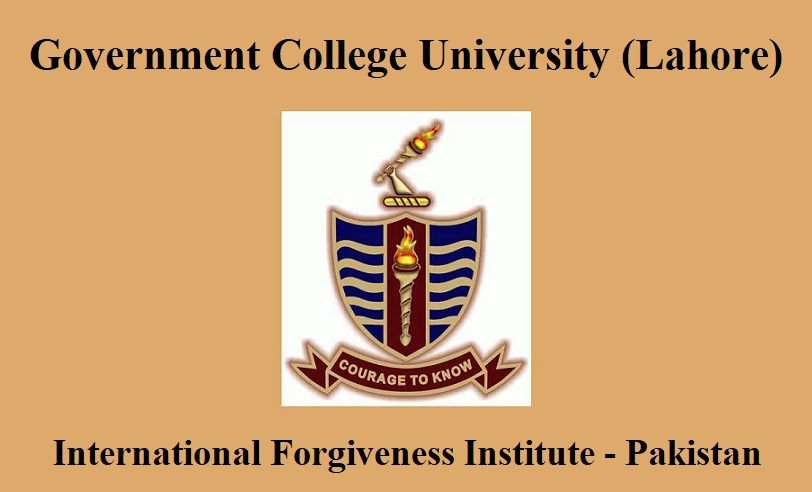The Missing Piece to the Peace Puzzle – FORGIVENESS
While Russia’s invasion of Ukraine is invoking unwelcome recollections of previous territorial wars, an international multidisciplinary team of researchers that has been meeting since 2014 is discovering what makes some societies more peaceful than others. One of the crucial elements for promoting peace and nonviolence, they say, is an individual’s capacity for forgiveness—a concept International Forgiveness Institute co-founder Dr. Robert Enright has been espousing for decades.
“We launched our first peace initiative in 2002 when we began teaching forgiveness education in Belfast, Northern Ireland,” Dr. Enright recalls. “I was convinced back then, and I believe even more so now, that forgiveness is the missing piece to the peace puzzle. These study results are nothing new.”
During his 35+ years of studying the virtue of forgiveness, Dr. Enright has repeatedly demonstrated that as people forgive, they become less angry, less depressed, less anxious, and more hopeful of their future. In other words, people become more peaceful within themselves, making the possibility of peace with others more likely. He outlined his grass-roots approach in this 2010 article: Forgiveness Education as a Path to Peace. Read Dr. Enright’s latest blog for Psychology Today, Forgiveness as a Missing Piece to Peace Between Ukraine and Russia.
The study results about crucial elements for peace come from a team of experts that is part of the Advanced Consortium on Cooperation, Conflict, and Complexity (AC4), a multidisciplinary research institute based at Columbia University in New York City. AC4 is a unit of the university’s Earth Institute which is made up of scholars spread across 35 research centers and programs encompassing more than 850 scientists, students, postdoctoral fellows and staff.
The group’s mission is to employ models and methods from complexity science (a branch of applied mathematics) to study the dynamics of peaceful societies with the goal of “revolutionizing peace and conflict resolution.” AC4 research has identified and studied more than 80 internally peaceful societies around the globe and identified their common characteristics including:
- abundant forgiveness reservoirs that help mitigate anger, fear, and negativity; and,
- higher levels of capacity for forgiveness that can lead to the endorsement of peace beliefs.
Working together with organizations like the United Nations (UN), the International Peace Institute, and The World Bank, AC4 is exploring various models (i.e., the role of forgiveness, victim memory, and reconciliation) in the actual peace process in countries like Colombia, Israel-Palestine, and Afghanistan. In the process, they are generating and promoting new practical, transdisciplinary, evidence-based approaches to peace.
Like AC4, the International Forgiveness Institute (IFI) has also collaborated with peace-seeking organizations going as far back as 1999 when Roy Lloyd, IFI Board President, was part of a delegation led by the Rev. Jesse Jackson that traveled to Belgrade, Yugoslavia (now Serbia). That delegation not only gained the release of three American soldiers captured during the Kosovo Conflict but also urged Yugoslavian President Slobodan Milosevic to accept a UN offer to establish a foreign peacekeeping force in Kosovo.
In 2014, Dr. Enright laid the foundation for “Forgiveness as a Peace Tool” at a 2-day work session hosted by the United Nations Population Fund (UNFPA) in New York City. Dr. Enright, a University of Wisconsin educational psychology professor, was named to serve on a UN international “Expert Group” that was established to begin developing intervention models aimed at ending gender-based violence around the world. Three weeks later, delegates at the United Nations Peace Conference in Geneva, Switzerland, resolved that “justice and forgiveness” are essential tools in peacebuilding.
“Peace is not a goal to be reached but a way of life to be lived.”
Archbishop Desmond Tutu
Nobel Peace Prize-winning South African Anglican cleric;
25+ years Honorary Board Member – IFI
More recently, Dr. Enright last fall negotiated the establishment of the International Forgiveness Institute’s newest partner, IFI-Pakistan. That Branch Office is housed at the Government College University Lahore (GCU-Lahore, Pakistan) and is the first of its kind in Pakistan and in Southern Asia. The unit will function in collaboration with the IFI with the mission of developing and disseminating forgiveness interventions and methodologies throughout the country.
“Because only a few psychologists have expertise in this field in Pakistan, we can now offer an accredited course teaching forgiveness psychology,” said GCU Vice Chancellor Dr. Asghar Zaidi, in announcing the partnership. “Forgiveness liberates us from anger, resentment, bitterness, and destructive behavioral patterns that are prevalent in our society.”
partnership. “Forgiveness liberates us from anger, resentment, bitterness, and destructive behavioral patterns that are prevalent in our society.”
Dr. Enright has been working since 2016 with Dr. Iffat Batool, a GCU psychology professor, who has tirelessly pursued creation of the unit. Pakistan was one of the seven countries that conducted research and validation on Dr. Enright’s new research tool, the Enright Forgiveness Inventory-30 and several of Dr. Enright’s research tools have already been translated into Urdu, one of the two official languages of Pakistan (along with English). A request is also pending to get the publisher’s approval to translate Dr. Enright’s book 8 Keys to Forgiveness into Urdu for use with GCU’s “Forgiveness Psychology and Practice” course.
Dr. Enright is also working closely with the National Director of the Liberia Forgiveness Education Program (that the IFI established 10 years ago after the country’s civil war finally concluded) to implement forgiveness interventions that could help with reconciliation efforts between the various factions: Can Group Forgiveness in Liberia Lead to Peace? His peace efforts in other parts of the world are outlined on the IFI website at Peace Education Goals.
Learn More:
- Interactive Sustainable Peace Casual Loop Diagram (AC4 Sustainable Peace Project)
- How to Live in Peace? Mapping the Science of Sustaining Peace (American Psychologist)
- The Sustainable Peace Mapping Initiative (Columbia University)
- Contribute to the realization of sustainable peace. Support the IFI with a charitable gift.



